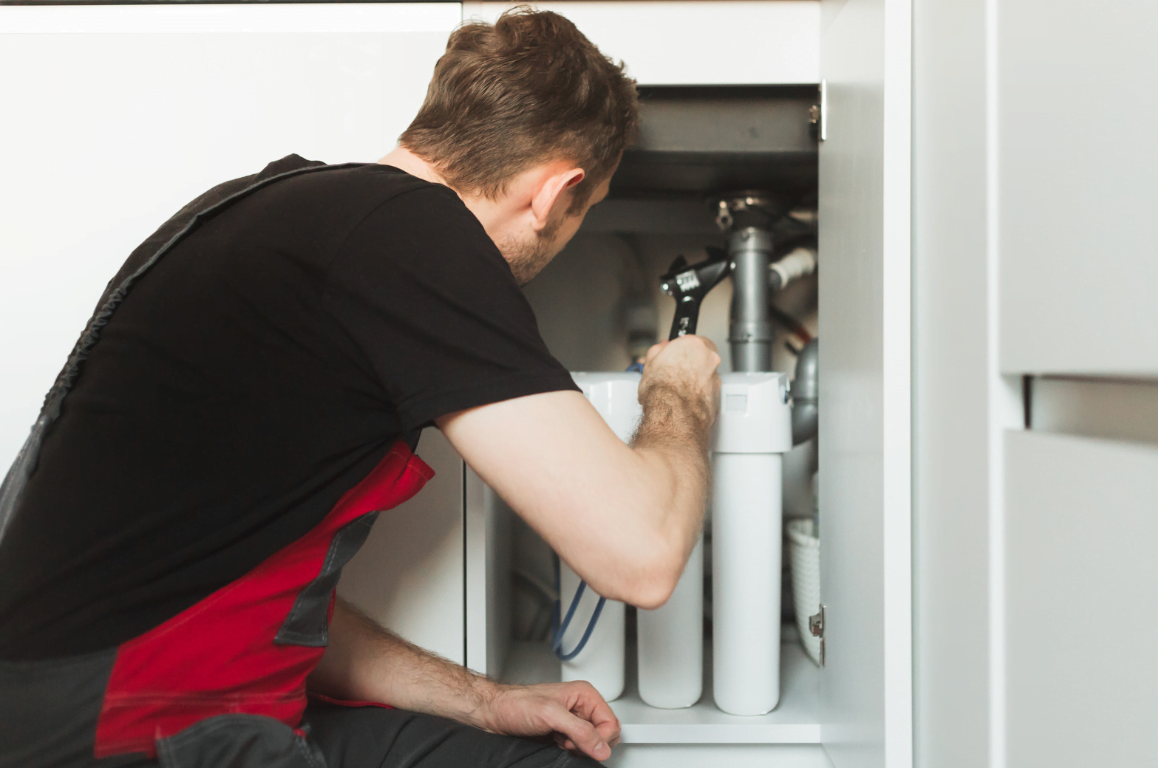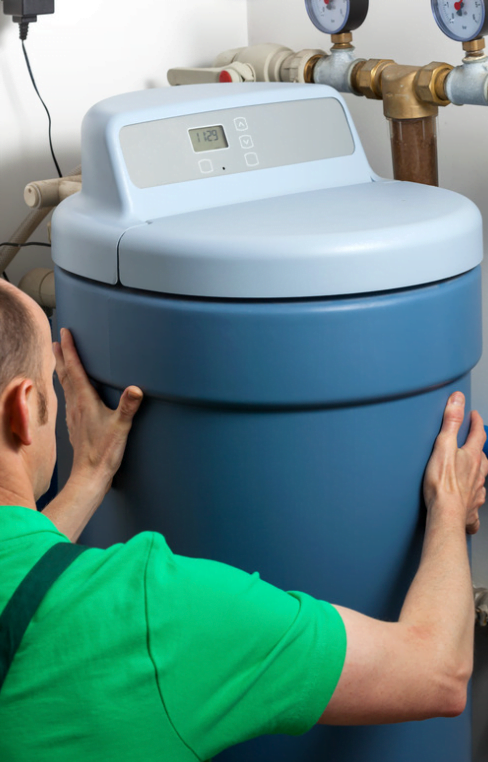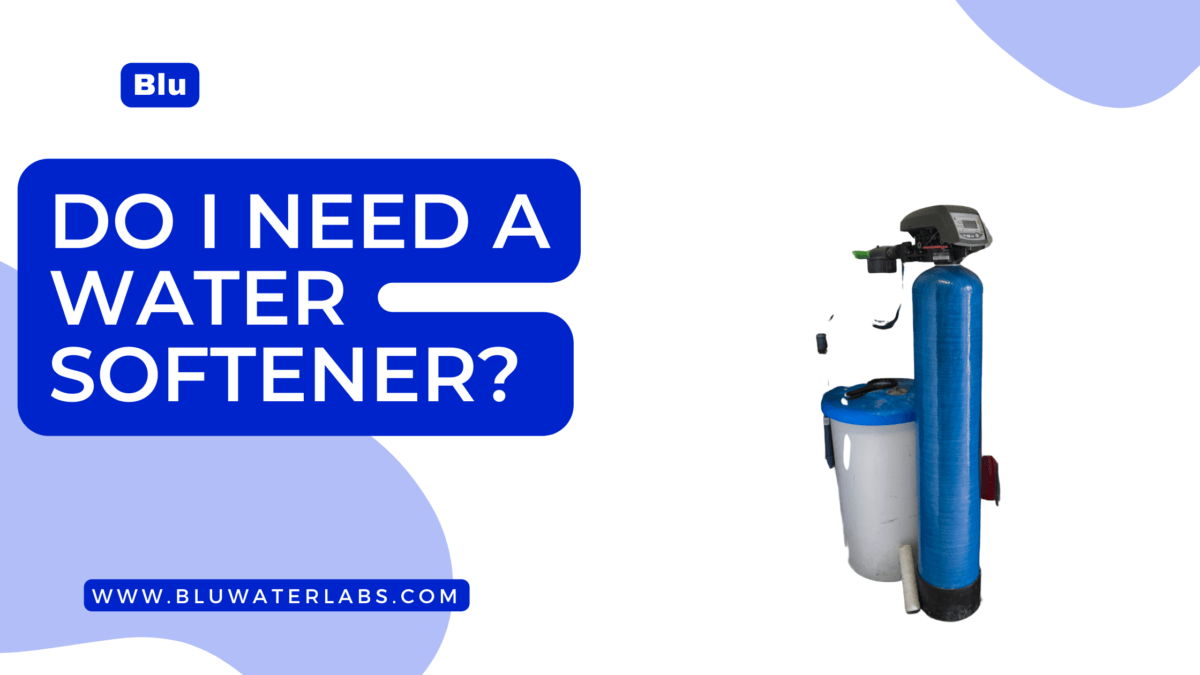Are you wondering if you need a water softener? The answer depends on a few factors, primarily the hardness of your water. In this article, I’ll help you determine if a water softener is the right choice for you, and I’ll explore the various benefits and signs to watch out for.
Hard water contains a high level of minerals, specifically calcium and magnesium, which can cause a range of issues in your home. To determine if your water is hard, you can have it professionally tested or use a DIY testing kit available at home improvement stores. Generally, if your water’s hardness is greater than 7 grains per gallon or 120 mg/L, you might want to consider a water softener.
Some signs that your home has hard water include crusty buildup on faucets, a white film on shower doors, spotty dishes after a full dishwasher cycle, and reduced appliance efficiency. By identifying these signs, you can make an informed decision about whether a water softener is necessary for your home. Stay tuned as we dive deeper into the topic and provide helpful tips and suggestions for addressing hard water issues.
Understanding Hard Water
Common Hard Minerals
Hard water contains high levels of minerals, primarily calcium and magnesium. These minerals are naturally occurring and can be found in the ground, which is the source of most water supplies. When water travels through the earth and picks up these minerals, it becomes hard water. The hardness level of water is classified as follows:
- 0 to 60 mg/L: Soft to slightly hard
- 61 to 120 mg/L: Moderately hard
- 121 mg/L and above: Hard
Effects on Appliances
Your appliances that use water, such as washing machines, dishwashers, and water heaters, can be negatively affected by hard water. Over time, the minerals in hard water can cause a buildup of scale, which can reduce the efficiency of your appliances and shorten their lifespans. Some of the impacts of hard water on appliances include:
- Reduced water flow due to scale build-up in pipes
- Decreased efficiency and performance of water-using appliances
- Increased energy consumption and utility costs
- Premature appliance wear and tear
Effects on Plumbing
Hard water can also cause issues within your home’s plumbing system, leading to clogged pipes, corroded fixtures, and reduced water flow. Here are some common effects of hard water on plumbing:
- Scale buildup in pipes, causing restricted water flow and potential clogs
- Corrosion of fixtures due to mineral deposits
- Shortened lifespan of plumbing components
By understanding the effects of hard water, you can make an informed decision about whether or not a water softener is necessary for your home. Remember to test your water hardness level and consider the potential long-term costs and implications on your appliances and plumbing before making a decision.
Do I Need a Water Softener?

Impact on Health and Household
Hard water can affect your skin, hair, clothes, dishes, and appliances. When you have hard water, you might notice that your skin feels dry or itchy, and your hair can become dull and unmanageable. Soaps and detergents don’t lather as well in hard water, which can make it more difficult to clean clothes, dishes, and other surfaces. Mineral buildup from hard water can also reduce the efficiency of your water heater and cause unsightly stains on your faucets and other plumbing fixtures.
Some households with well water or municipal water may experience a foul taste, smell, or appearance of their drinking water. This could be due to high levels of iron or other minerals present in the water. A water softener can help to improve these issues by removing the minerals that cause these problems.
Testing for Hard Water
To know if a water softener is necessary for your home, it’s important to test the hardness of your water. You can purchase a water test kit or have a professional conduct a test for you. Water hardness is usually measured in grains per gallon (gpg) or milligrams per liter (mg/L). If your water’s hardness exceeds 7 grains per gallon or 120 mg/L, a water softener would be beneficial to improve the quality of your water and protect your appliances.
Removing minerals like calcium and magnesium from your water with a water softener can prevent limescale buildup in your pipes and plumbing fixtures. This also reduces the need for harsh chemicals, such as bleach, to remove stains or combat hard water deposits.
However, water softeners typically use sodium to replace these minerals, which may not be suitable for everyone. Keep in mind that softened water may not be the best choice if you are on a low-sodium diet or have certain health concerns.
In conclusion, using a water softener can positively impact your health and household by improving the quality of your water, reducing mineral buildup, and extending the life of your appliances. Test your water to determine if a water softener is right for you and remember to consider the sodium content, as it may not be appropriate for everyone.
Benefits of Softened Water

Improving Household Chores
Soft water makes household chores easier and more efficient. With soft water, you’ll notice:
- Less soap and detergent use: Soft water allows you to use less laundry detergent and dish soap, saving you time and money.
- Cleaner clothes: Your clothes will come out cleaner and brighter as soft water prevents scale buildup and allows detergents to work more effectively.
- Spot-free glassware and dishes: Soft water eliminates stubborn water spots and residue on your glassware, dishes, and silverware, so they’ll look their best.
- Easier cleaning: Soft water doesn’t leave mineral deposits on surfaces, making them easier to clean and maintain.
Longer Appliance Life
Appliances that use water, such as dishwashers, washing machines, and hot water heaters, will last longer and require fewer repairs with soft water. This is because soft water prevents scale buildup that can cause corrosion and damage. Some benefits include:
- Reduced maintenance costs: Soft water prevents scale buildup, meaning you’ll spend less time and money on maintenance and repairs for your appliances.
- Increased appliance efficiency: Soft water allows your appliances to work at their peak efficiency, reducing energy consumption and lowering utility bills.
- Extended appliance life: Soft water reduces wear and tear on your water-using appliances, prolonging their lifespan and saving you replacement costs.
Personal and Environmental Advantages
Soft water offers several personal and environmental benefits, such as:
- Healthy skin and hair: Soft water won’t strip your skin of its natural oils, so you’ll experience fewer breakouts and dryness. Your hair will also be shinier and more manageable.
- Lower environmental impact: Since soft water requires less detergent and soap, you’re contributing to a healthier environment by reducing chemical waste.
- Better cooking results: The lack of scale buildup in your pots and pans helps you achieve more consistent cooking results and tastier dishes.
- Reduced sodium intake: Many water softeners use sodium ions to replace the unwanted hard minerals like calcium and magnesium. However, alternative types of water softeners can reduce sodium intake for those concerned with their health.
By understanding the benefits of soft water, you can make an informed decision on whether a water softener is a worthwhile investment for you and your home. Remember to consider factors such as your water source, the types of appliances you have, and your individual needs when making your decision.
Choosing a Water Softener
Types and Features
When selecting a water softener for your home, consider the different types available. The most common type is the ion exchange water softener, which uses salt to remove hard minerals like calcium and magnesium from your water supply. Salt-free water softeners are an alternative for those looking to avoid using salt in their systems; however, they may not be as effective as ion exchange units.
Some features to look for in a water softener include:
- Capacity: A softener’s size is determined in grains per gallon (GPG), usually ranging from 24,000 to 64,000 GPG. Determine your household’s water usage in order to choose the right size.
- Efficiency: Water softeners vary in their ability to remove hard minerals and in the amount of salt and water they use during regeneration.
- Controls: Consider whether you prefer a timed, metered, or demand-based control system. Timed controls regenerate at fixed intervals, while metered and demand-based controls regenerate based on actual water usage.
- Bypass valve: This is useful for allowing water to bypass the softener for tasks that don’t require softened water, like watering plants.
Installation and Maintenance
Proper installation and maintenance are crucial to the efficiency and longevity of your water softener. Here are some tips.
- Follow the manufacturer’s instructions for installation to ensure optimum performance.
- If you’re not a DIY enthusiast, consider hiring a professional to install your water softener.
- Monitor and maintain the appropriate salt levels in the brine tank. Different softeners have different salt requirements, so read the manual for guidance.
- Regularly clean and sanitize the brine tank to prevent buildup and clogging.
- Replace filters as recommended by the manufacturer to maintain the effectiveness of your system.
By choosing the right water softener type, size, and features for your home, you can enjoy the benefits of softened water, including savings on soap usage, reduction of chalk and scum buildup on sinks and toilets, and prevention of clogging and hard mineral deposits in your pipes. With proper installation and maintenance, you’ll be protecting your investment for years to come.
Recap – Do I Need A Water Softener?
Deciding whether you need a water softener depends on your preferences and the hardness of your water supply. To help you evaluate your situation, here are some key points to consider:
- The hardness level of your water: If your water’s hardness is greater than 7 grains per gallon or 120 mg/L, you might need a water softener to prevent issues with your appliances, improve the taste, smell, and appearance of your water. To find out the hardness of your water, you can contact your local municipality (if you have city water) or request a free test strip.
- Signs of hard water in your home: Some common signs that you have hard water include scale buildup on your pipes, surfaces, and appliances, water heater malfunctions or failures, and difficulty in lathering soap or detergents. If you notice any of these, it might be a good idea to consider getting a water softener.
- Benefits of softened water: Softened water doesn’t cause scale buildup, which can prolong the life of your pipes, surfaces, and appliances. Moreover, soft water can help you save money on your heating bill and reduce the amount of soap and laundry detergents you need for washing clothes and kitchenware.
It’s important to remember that needing a water softener is primarily based on your preferences and specific needs. If you’re experiencing obvious issues and inconveniences due to hard water, installing a water softener can be a great solution.
Related Articles:


